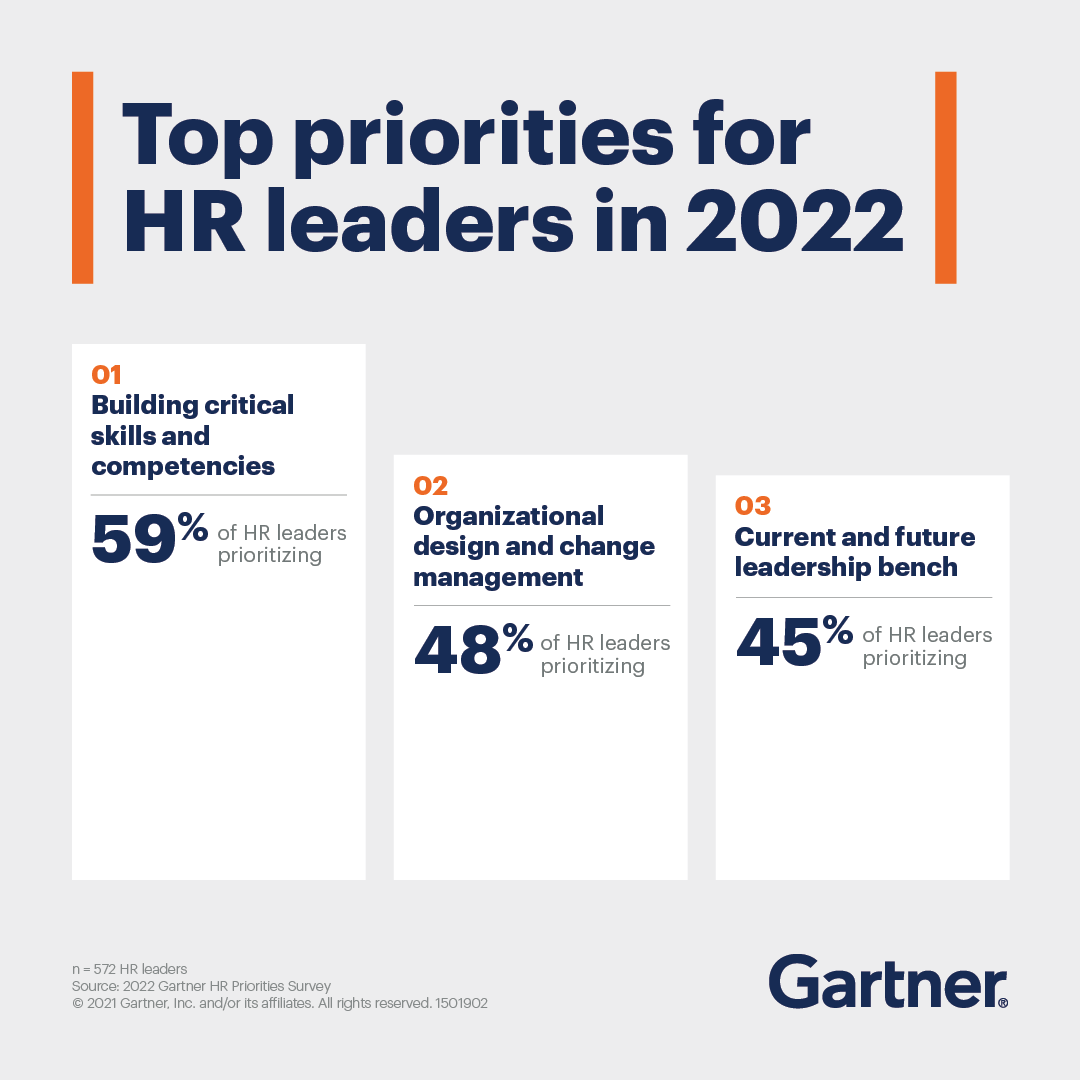Here’s another new survey about HR “leaders” and their “priorities” for 2022:

Maybe the clearest way I could say this: no one who is successful in business has ever cared about what HR is thinking about. They just haven’t. HR is a joke. They exist to offer low-grade compliance (real compliance comes from legal or the law firm on retainer) and they exist as a way to inhumanely fire people so that the direct manager or executive of the silo doesn’t have to do much emotionally. That’s it. HR’s “priorities” literally change on a dime, too, because they’re incredibly reactive to whatever new deck the executive team assigned them to work on. I’ve written similar things before.
Even look at this graphic above, right? Here are the three buckets:
- Building skills and competencies
- Change management
- “The bench”
Here’s who really does those three things:
- Employees themselves (and ideally their managers)
- Executives and senior leaders, with hopefully implementation help from front-line managers
- Executives
HR might aid in some of those processes, but they don’t own any of it. They generally don’t understand the core business well enough to “own” anything. If you want to get even more specific and granular on these supposed “priorities,” I have you covered:
- Building skills: Typically employers will not pay for this, which is why you have freemium training options out there, and code academies, etc. People want to develop, but they usually need to drive that themselves. When a manager offers to help develop an employee, usually it means sending them to an utterly meaningless digital conference and asking for a vague report back.
- Change management: Man, oh man. Back in the day I used to write about change management constantly. This was one of my favorite posts. I stopped writing about it largely because it’s bullshit at the organizational level. Change happens at an individual level, and if enough individuals can be changed incentive-wise or priority-wise, then maybe you can have change at the org level. What usually happens is that a few silos spend 18 months working on “decks” about their “strategies” and “plans,” those decks are in turn presented to senior leaders, and nothing about the business or the culture changes across three years. It’s a fun circle to be part of. HR is usually part of the teams making decks — about “belonging” and the like — but they don’t own anything.
- The bench: Told this story in other blogs, but I forget which ones, so eh. Worked at a place about five years ago. Multiple billions made. Big company. I went to one leadership pipeline meeting. There was a woman about 2 levels below the SVPs at this company. She was killing it. I mean driving growth, new customers, etc, etc. Murdering targets. Now, yes, she’s a woman. That cannot be ignored here. But every time her name came up at these meetings, someone would pooh-pooh it. It wasn’t because she was a woman — well, probably partially was — but it’s because at her level, she was making the existing executives look good. Who wants to advance a person like that? There are different circles of management, and when you factor human psychology in, it makes leadership pipeline ideas very complicated. Succession planning is tricky.
So no, HR doesn’t “own” or “prioritize” any of this stuff. If anything, they pivot and change priorities with the frequency of a mid-1980s cocaine addict, largely based on the recent whim of executives. Stop writing about HR leaders and their plans as if they matter. They don’t.
